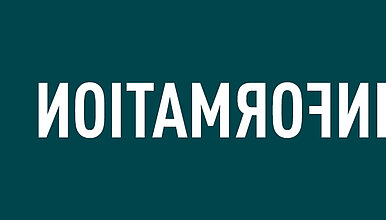Disinformation

forsa survey on disinformation 2020
Read more
Disinformation – this term can be found in newspaper headlines, questions at podiums, and the agendas of national and international politics. Why is that the case and what does the term "disinformation" even mean?
What does "disinformation" mean?
It is still difficult to agree on a definition for the term "disinformation". However, some elements are undisputed. It refers to information which is deliberately inaccurate and spread systematically. Although there was already disinformation before the Internet came into existence, its structured dissemination has taken on alarming proportions in the digital age.
The dissemination of disinformation frequently pursues a political or economic objective. Examples of this include unsettling the public with regard to the significance and implications of current events or the weakening of certain political positions, people, or companies and thus ultimately the manipulation of the opinion-forming process. A further example is clickbaiting, which entails provoking a greater number of clicks using sensational titles, thus increasing advertising income.
What does disinformation look like?
Disinformation comes in many forms. For example, it can be in the form of publishing factually incorrect stories under the guise of journalism. However, buying likes, the mass use of fake accounts, or non-disclosed political advertising are sometimes called disinformation. It is now an important role to learn to detect and distinguish between various facets of disinformation since it is the only way to tackle this problem appropriately.
What makes disinformation so dangerous?
Disinformation is a danger to democracy. In a democracy in which each and every eligible voter can use their vote to shape the outcome of elections and thus the political and social reality in their country, it is a basic requirement for information to be freely accessibly and factually correct. Media plays a key role in this context. Public discourse takes place in the media, and the different opinions and moods in the general public should also be reflected in the media. However, due to the dissemination of disinformation, this decisive element of any democracy is not guaranteed, which makes it a central topic for domestic, foreign, and economic policy. Nevertheless, media policy must also address this phenomenon.
Why is disinformation a media policy topic?
The media regulatory authority in Germany is dedicated to the freedom of speech. Our most important task is facilitating freedom of expression in the media and the free formation of opinions through the media. However, this is impossible when public discourse is warped by the targeted dissemination of misinformation. A media policy solution is necessary here.
The special challenge in handling disinformation is that it exploits the heart of a democratic media landscape while destroying it at the same time: the freedom of expression. Maintaining this right while at the same time preventing criminal abuse will occupy media policy intensively over the coming months. We would be pleased to update you regarding our work on this issue on our website.
Die Seiten-Url wurde in der Zwischenablage gespeichert.